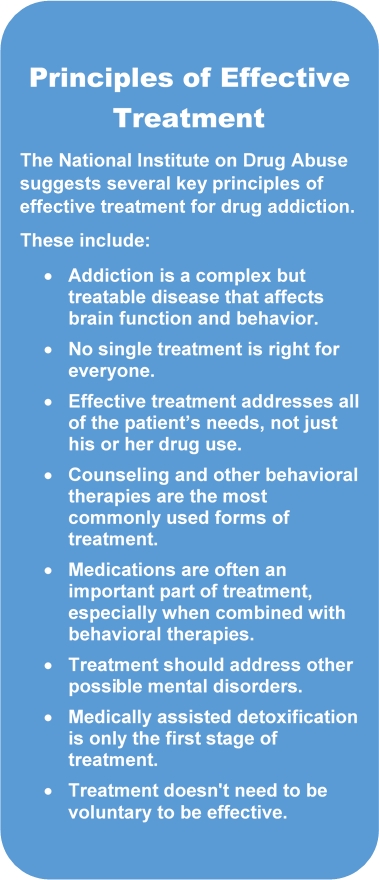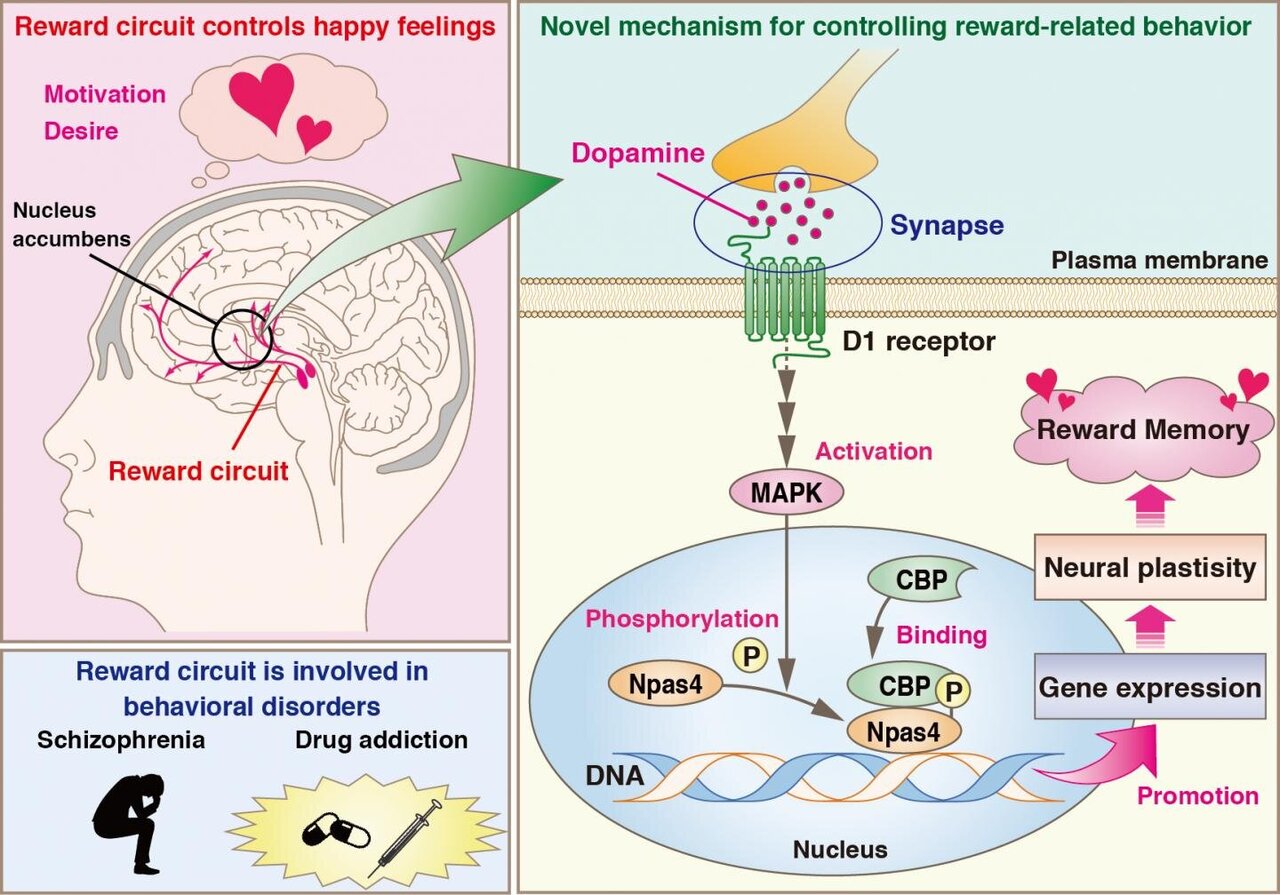Rumored Buzz on How Has Addiction Treatment Changed
It can't be cured, however it can be managed with treatment. Other examples of chronic diseases include asthma, diabetes, and heart disease. It is important that treatment simultaneously attends to any co-occurring neurological or psychological conditions that are known to drive vulnerable individuals to explore drugs and end up being addicted in the very first place.
3 Research studies released in top-tier publications like The New England Journal of Medicine support the position that addiction is a brain illness. 4 An illness is a condition that changes the method an organ functions. Addiction does this to the brain, altering the brain on a physiological level. It actually modifies the way the brain works, rewiring its fundamental structure.

Although there is no treatment for dependency, there are numerous evidence-based treatments that are reliable at handling the disease. Like all chronic illnesses, dependency needs continuous management that might include medication, therapy, and lifestyle change. Once in healing from compound use disorder, an individual can go on to live a healthy and successful life.
The human brain is wired johnnyvrlr388.image-perth.org/some-known-facts-about-how-big-is-the-addiction-treatment-industry-in-minnesota to reward us when we do something enjoyable. people at the highest risk of drug addiction are those who are. Working out, eating, and other pleasurable behaviors directly connected to our health and survival trigger the release of a neurotransmitter called dopamine. This not just makes us feel good, however it encourages us to keep doing what we're doing.
How To Overcome A Drug Addiction Fundamentals Explained
5 Drugs activate that exact same part of the brainthe reward system. But they do it to a severe level, rewiring the brain in harmful methods. When someone takes a drug, their brain launches extreme amounts of dopamineway more than gets released as an outcome of a natural satisfying behavior. The brain overreacts, minimizing dopamine production in an effort to stabilize these sudden, sky-high levels the drugs have created.
How the Brain Reacts To Natural Benefits & Drugs (NIDA) Studies have actually revealed that consistent drug use significantly restricts an individual's capability to feel pleasure. at all. 6 In time, substance abuse leads to much smaller releases of dopamine. That means the brain's benefit center is less receptive to enjoyment and pleasure, both from drugs, in addition to from every day sources, like relationships or activities that a person once taken pleasure in. how to get over drug addiction.
7 Withdrawal takes place when an individual who's addicted to a substance stops taking it entirely: either in an effort to stop cold turkey, or because they do not have access to the drug. Someone in withdrawal feels absolutely horrible: depressed, despondent, and physically ill. Brain imaging studies from drug-addicted individuals reveal physical, measurable changes in locations of the brain that are vital to judgment, decision making, learning and memory, and habits control.
8 An appealing trainee may see his grades slip. A bubbly social butterfly might unexpectedly have trouble rising. A trustworthy sibling may start stealing or lying. Behavioral changes are straight linked to the drug user's altering brain. Yearnings take control of. These cravings are painful, constant, and sidetracking.
Why Is Drug Addiction Considered A Disease - Questions
Especially provided the intensity of withdrawal symptoms, the body wishes to prevent remaining in withdrawal at all expenses. "We require to tell our children that a person drink or one pill can lead to a dependency. A few of us have the genes that increase our risk of addiction, even after simply a few uses.
But at some point during use, a switch gets turned within the brain and the decision to use is no longer voluntary. As the Director of the National Institute on Substance abuse puts it, it's as if an addicted individual's brains has actually been pirated. Anybody who tries a compound can become addicted, and research study reveals that the majority of Americans are at threat of establishing dependency.
What's more, 42% of 1718 year olds report that they have actually tried illicit drugs. 10 After preliminary exposure, nobody picks how their brain will respond to drugs or alcohol. So why do some individuals establish addiction, while others don't? The latest science indicate 3 primary elements. Scientific research study has actually revealed that 5075% of the probability that an individual will develop dependency originates from genetics, or a family history of the health problem.
Research study shows that maturing in an environment with older adults who utilize drugs or take part in criminal behavior is a danger element for addiction. Protective factors like a stable home environment and encouraging school are all shown to lower the danger. Addiction can establish at any age. But research study shows that the earlier in life a person tries drugs, the most likely that person is to develop dependency.
Not known Factual Statements About People At The Highest Risk Of Drug Addiction Are Those Who Are
Introducing drugs to the brain during this time of development and modification can cause severe, lasting damage. Addiction is not a choice. It's not a moral failing, or a character defect, or something that "bad people" do. The majority of researchers and specialists agree that it's a health problem that is triggered by biology, environment, and other elements.
An individual can't reverse the damage drugs have done to their brain through sheer determination. Like other chronic diseases, such as asthma or type 2 diabetes, continuous management of dependency is required for long-lasting healing. This can include medication, behavior modification, peer-support, and way of life adjustments.
This feature post on neuroscientist Marc Lewis and his brand-new book discusses his theory that callenges the modern-day concensus on drug reliance as a brain disease, arguing that in "in reality it is a complex cultural, social, psychological and biological phenomenon" as NDARC Teacher Alison Ritter describes. For a very long time, Marc Lewis felt a body blow of pity whenever he kept in mind that night.
Lewis was slumped half-naked in a bathtub. "We were just speaking about what to do with the body." Lewis was at only the beginning of his odyssey into opiates. After this overdose, he dropped out of university and didn't choose up his research studies for another 9 years. At the next attempt, he was standing out at medical psychology when he made the front page of the local paper.

Getting The How To Get Over Drug Addiction To Work
That was Drug Abuse Treatment negligent; he 'd been successfully managing three or 4 burglaries a week. That was 34 years earlier. Now 64, Teacher Marc Lewis is a developmental neuroscientist, based at the Radboud University in Nijmegen in the Netherlands. He details his Alcohol Abuse Treatment early exploits in 2011's Memoirs of an Addicted Brain, with the sort of thrilling detail that ought to offer you some kind of biochemical response.
The prevalent theory in the United States, and to some degree in Australia, is that dependency is a persistent brain illness a progressive, incurable condition that can be kept at bay just by fearful abstinence (what cause drug addiction). There are variations of this illness model, among which became the basis of 12-step recovery and the touchstone of the vast majority of rehab programs.
It can duly be unlearned by forging more powerful synaptic pathways via much better practices. The implication for the $35 billion-dollar treatment industry in the US is that dealing with addiction as a medical concern ought to be only a little component of a more holistic technique. The problem is, there's a lot of vested interest and financial investment in perpetuating the disease design.
Last updated
Was this helpful?